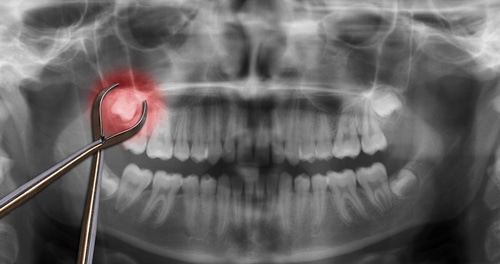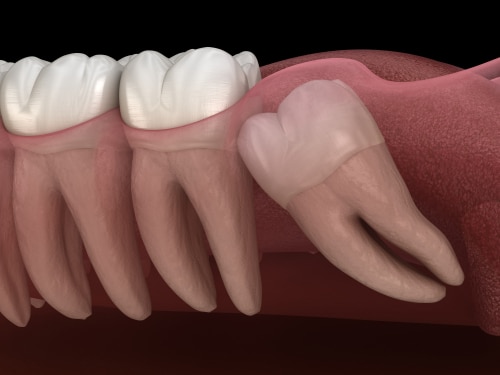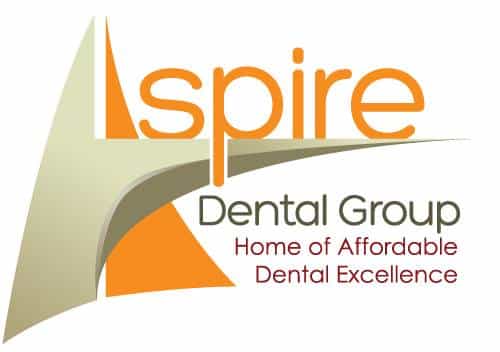Extractions in Lake City, FL
Many different dental issues can require extractions. Some of the most common are untreated cavities that lead to severe tooth decay, advanced gum disease, and problematic wisdom teeth. However, tooth extraction can also help with other problems like overcrowded teeth or dental trauma.
If you need a tooth extraction or want to learn more about the most effective tooth replacement options, Dr. Harvey and Dr. McNair at Aspire Dental Group are here to help.
What Are Tooth Extractions?
 A tooth extraction is a procedure that involves removing a tooth from its socket. Sometimes, procedures like dental crowns or fillings can repair damaged teeth. In these cases, Dr. Harvey and Dr. McNair will try to save the natural tooth if possible. But for severely infected, decayed, or impacted teeth, sometimes extractions are the best—or only—option.
A tooth extraction is a procedure that involves removing a tooth from its socket. Sometimes, procedures like dental crowns or fillings can repair damaged teeth. In these cases, Dr. Harvey and Dr. McNair will try to save the natural tooth if possible. But for severely infected, decayed, or impacted teeth, sometimes extractions are the best—or only—option.
The most common signs indicating that a tooth requires an extraction include:
- Severe tooth pain
- Swollen gums
- Jaw pain or stiffness
- Painful chewing
If the tooth is severely decayed or infected, then removing the tooth can get rid of all bacteria in the area, keeping you healthier and preventing further issues down the line. An extraction can also relieve pain brought on by the damaged tooth.
While the idea of tooth extractions might not be particularly enjoyable, the procedure is practically painless thanks to local anesthetic. At Aspire Dental Group, we use buffered local anesthesia, which effectively reduces patient discomfort and increases satisfaction in procedures like extractions.
When Are Tooth Extractions Required?
A tooth extraction may be the best option if you have:
- Severe tooth decay
- An impacted tooth that hasn’t broken through the surface of the gums
- A broken tooth or other dental injuries
- Crowded teeth
- Severe gum disease
- Problematic wisdom teeth
If wisdom teeth are causing problems or are likely to create issues in the future, we recommend removing them as soon as possible. If you have problematic wisdom teeth, you’re not alone. About 5 million people face this widespread problem annually.
We may also need extractions to prepare for implant-retained dentures or an implant-supported dental bridge.
Types of Extractions
Extractions fall into one of two main categories: simple or surgical.
Simple Tooth Extraction
A simple tooth extraction is typically performed on teeth that are easily accessible and structurally intact. In this procedure, we administer a local anesthetic to numb the tooth and surrounding area. Special dental instruments are used to gently loosen and lift the tooth from its socket. The tooth is then extracted in one piece. Recovery from a simple extraction is relatively quick, with minimal discomfort, and patients can usually resume their regular activities shortly after the procedure.
Surgical Tooth Extraction
On the other hand, surgical tooth extraction is necessary when a tooth is impacted, partially erupted, or difficult to access. This procedure is more complex and may involve making an incision in the gum tissue to access the tooth. In some cases, the tooth may need to be sectioned into smaller pieces for removal. Sutures may be used to close the incision. Recovery from a surgical extraction is typically longer and may involve more post-operative discomfort, including the potential for swelling and bruising. We will provide specific aftercare instructions, including pain management measures and oral hygiene precautions to support optimal healing.
The Tooth Extraction Process
 If you are worried about the health of your teeth and think you might need a tooth extraction, please call to schedule an appointment at Aspire Dental Group. During your visit, Dr. Harvey or Dr. McNair will examine the affected tooth and surrounding area to formulate a treatment plan. They’ll also review your medical history, current medications, and oral hygiene routine. If you have concerns about dental anxiety, recovery time, or procedure costs, we will answer each of your questions and help you make the best decisions for your oral health.
If you are worried about the health of your teeth and think you might need a tooth extraction, please call to schedule an appointment at Aspire Dental Group. During your visit, Dr. Harvey or Dr. McNair will examine the affected tooth and surrounding area to formulate a treatment plan. They’ll also review your medical history, current medications, and oral hygiene routine. If you have concerns about dental anxiety, recovery time, or procedure costs, we will answer each of your questions and help you make the best decisions for your oral health.
To begin the procedure, we will apply local anesthetic to the affected area to ensure you don’t feel any pain while we work, although you may feel some pressure. We will then use specialized dental tools to loosen the tooth and gently extract it from its socket. If the tooth is severely decayed and cannot be removed through traditional methods, we may need to make an incision in the gums to gain access. The length of your procedure will depend on your specific situation and whether a simple or surgical extraction is needed.
Once we remove the tooth, we will clean the socket and remove any debris. If needed, we’ll use stitches to ensure proper healing of the area. Finally, Dr. Harvey or Dr. McNair will apply gauze to the socket to assist with blood clotting.
Recovery and Aftercare
Tooth extraction typically has a relatively short recovery period. Most people report feeling back to normal in a few days. However, there are steps you will need to follow to promote the proper healing of the treatment area. We will provide you with detailed aftercare instructions to help ensure you recover swiftly.
Keeping the area clean is very important. After 24 hours, you can rinse with mouthwash and brush gently, but avoid directly brushing over any stitches. If prescribed any medications, make sure to take them as directed. If your case does not require a prescription for pain management, you can use over-the-counter pain relievers. To reduce swelling, we recommend using an ice pack for the first 24 hours and propping yourself up to sleep.
Be sure to avoid strenuous activities for a few days, as the increase in blood flow can disrupt proper healing. Eat soft foods like yogurt, soup, and pasta for the first couple of days, and introduce your regular foods slowly. You can drink normally, but avoid particularly hot or cold liquids, and do not use straws, as the suction can dislodge your blood clot, leading to a painful condition called dry socket.
Tooth Replacement Options
After a tooth is removed, the logical next step is replacing it. Missing teeth can lead to a host of problems, such as difficulties in chewing, changes in speech, shifting of adjacent teeth, and a potential decline in self-confidence due to the altered appearance of your smile. Additionally, tooth loss leads to bone loss in the jaw. Your jawbone depends on constant stimulation from the tooth roots to remain healthy. When a tooth is removed, it no longer helps stimulate the jawbone, leading to decreased bone volume and density.
At Aspire Dental Group, we specialize in replacing teeth with mini dental implants. These thin titanium posts screw directly into the jaw, functioning as artificial tooth roots. Mini implants are superior to their more traditional implant counterparts thanks to their smaller size, which suits those individuals with less bone density. Their small size and much quicker placement procedure give them a faster recovery time. This efficiency translates to a more cost-effective overall process than traditional implants, all while maintaining the same level of quality.
Mini implants can support a single false crown or, in cases where multiple teeth have been extracted, an implant-supported bridge. These bridges use mini implants to support multiple false teeth. If you’ve lost most or all of your teeth, implant-retained dentures are ideal. These dentures snap onto the mini implants, offering a better combination of stability and natural feel than traditional dentures. No matter the restoration needed, each mini implant option will blend in with your natural teeth and offer exceptional stability.
Schedule Your Appointment at Aspire Dental Group
If you need a tooth extraction, there’s no need to worry. Tooth extractions offer relief from pain, prevent infection from spreading or worsening, avert future wisdom teeth issues, and prepare the mouth for mini implants.
At Aspire Dental Group in Lake City, FL, we provide tooth extraction and replacement options to fit every situation and budget. Dr. Harvey and Dr. McNair have a wealth of combined experience, and their extensive training means you’re getting the latest in dental care.
There’s no reason to suffer any longer. If you think you need a tooth extraction, call us today to schedule an appointment and start your journey towards a healthier smile.
